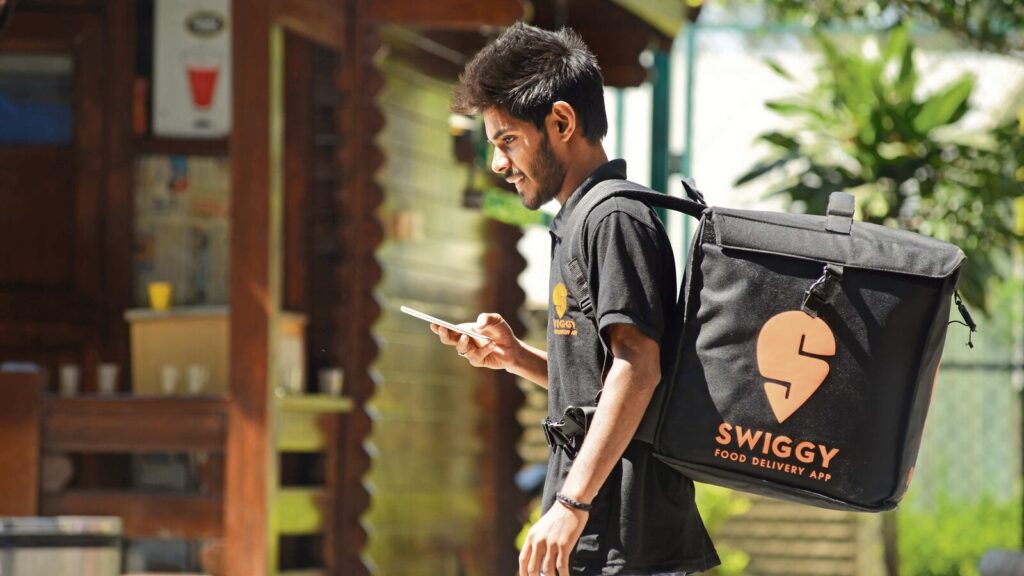Quick delivery, quick returns: How Instamart, Zepto and Blinkit plan to take on e-commerce giants

Quick commerce platforms Swiggy Instamart and Zepto are looking to tweak their policies to enable easy returns and replacements for non-food items including clothes and footwear, according to two people aware of the development.
This follows a similar move by Zomato’s quick-commerce app Blinkit, and is aimed at positioning quick commerce platforms as people’s preferred shopping destination, especially during the festive season.
Earlier this week, Blinkit rolled out 10-minute returns for footwear and apparel products to address size and fitting issues among users. Swiggy Instamart has been testing the feature with select users and is expected to roll it out for all users in the next two to three weeks, said one of the people cited above.
“Swiggy Instamart has been offering returns in just 10 minutes for several weeks now. We will continue expanding this feature to include more use cases and categories in the coming days,” a Swiggy Instamart spokesperson said in response to Mint’s query.
Albinder Dhindsa, CEO of Blinkit, said in a post on X on Tuesday, “We’ve been testing this in Delhi NCR for a couple of weeks and have now enabled it for Mumbai, Bangalore, Hyderabad and Pune. More cities to be added soon!”
Zepto did not respond to emailed queries.
Also read: How the quick commerce brigade sparked a fall in Radhakishan Damani’s blue chip stock
Quick commerce platforms have been expanding their apparel catalogues in recent months. Zepto recently tied up with US Polo Assn, while Blinkit offers festival wear from brands such as Manyavar and Fabindia. Swiggy Instamart’s apparel range includes brands such as Jockey and XYXX.
India’s online fashion industry, which includes clothing, shoes, accessories, bags and luggage, is expected to be worth $18 billion by the end of 2024, which makes it a lucrative proposition for platforms.
“Easy returns may encourage consumers to shop more on quick commerce platforms than [traditional online] marketplaces, which usually take longer to deliver as well as return and exchange products,” said Chirag Taneja, co-founder and chief executive of GoKwik, an e-commerce enablement platform.
Easier said than done?
While the feature is aimed at attracting more users to shop for things other than groceries on these platforms, implementing it may not easy, industry executives told Mint. “Quick commerce returns are fairly new, with Blinkit introducing it in a few cities recently. The long-term impact is yet to be seen,” Taneja said.
Returns are an integral part of the customer experience for most online shoppers but does not guarantee repeat purchases, said Satish Meena, advisor at Datum Intelligence.
Returns are likely to be even trickier for quick commerce platforms than they are for traditional e-commerce companies, given the shorter timelines. “Easy returns can also lead to a higher volume of returns, which may increase the operational costs for quick commerce companies. Hence, it is hard to say if this will be sustainable and whether it will work outside select metro cities,” said Taneja.
Moreover, easy returns or replacements alone may not be enough to change consumer habits. Quick commerce platforms will also need to have more inventory and choice in categories other than groceries, Taneja added.
Also read | Investors shy from FMCG stocks but embrace quick commerce platforms: Why?
While returns are a new feature in quick commerce, traditional e-commerce companies, especially marketplaces, have tried to reduce the number of returns over the past few years. Last year, Myntra introduced a fee ranging from ₹199 to ₹299 for customers with a high rate of returns. However, with the rate of returns rising despite this, they are now scrutinising consumer behaviour more closely than ever.
Quick commerce firms are trying to figure out ways to facilitate returns in the most economical way. Fashion, which includes apparel, accessories, footwear and bags, sees the highest return rates among all categories throughout the year, followed by electronics and beauty & personal care items, according to Meena.
To be sure, platforms such as Blinkit, Zepto, and Swiggy Instamart already allow returns and replacements for spoiled and damaged grocery items through their online customer support channels.
“It is possible that platforms are figuring out their returns strategy by experimenting with apparel first. As more categories are included, the cost of returns will come to light,” he added.
A growing problem for e-commerce platforms
Product returns are becoming increasingly difficult for e-commerce companies to manage. The feature, which is meant to attract customers, could cost Indian e-commerce companies $20-30 billion in revenue by 2025, according to estimates by Return Prime, a platform that manages returns and exchanges.
Also read: For DMart, quick commerce threat comes to the fore
Since returns are a new feature on quick commerce platforms, no industry estimates are available. However, with the size of the quick commerce market expected to cross $9 billion in 2025 from $6 billion at present, high volumes of returns could weigh on the companies in the long run, according to Datum’s Meena and GoKwik’s Taneja.
The cost of ‘reverse logistics’ can hurt margins as it involves picking up the product, shipping it back to the warehouse, conducting quality checks, and finally refunding the money.
The cost of returns is generally about 10-12% of the entire product cost, leaving brands with very little earnings. In some cases, brands have to pay from their own pockets to facilitate these, according to Meena.
Mint reported last month that goods sold online in categories such as fashion, accessories, home decor and kidswear are likely to be harder to return this festive season as companies are looking to maximise earnings and minimise logistical hurdles.
Also read: Smaller consumer brands jazz up pitches in scramble to get listed on quick commerce platforms








